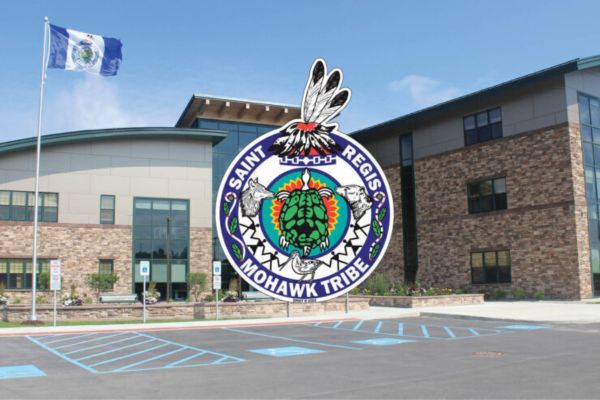
- Details
- By Elyse Wild
The Saint Regis Mohawk Tribe is getting a $1.3 million payout from a nationwide settlement for communities affected by the opioid crisis.
The payment is part of the opioid settlements reached in 2022 with major opioid manufacturers Teva and Allergan and distributors Walmart, Walgreens, and CVS. The settlements total $590 million.
More than 103,000 Americans died in opioid-related incidents in 2022, according to the Centers for Disease Control and Prevention (CDC). That’s up more than 200% since 2000, according to CDC data. As overdoses soar throughout the country, driven by the opioid crisis and the proliferation of synthetic opioid fentanyl, Native American communities are among the hardest hit.
While Americans of all races and ethnicities have been affected, the proliferation of opioid deaths has disproportionately affected Black, Indigenous, and People of Color (BIPOC) communities. In 2020, Native Americans’ opioid mortality increased 39% over the prior year — the second-highest rate of increase behind African Americans, according to the CDC.
According to a statement by the Saint Regis Mohawk Tribe, opioid addiction is behind an increase in child welfare cases, foster care cases, and a rise in crime in the community. In 2018, the Tribe estimated that opioid abuse and addiction have consistently accounted for around 85 to 90 percent of child welfare cases annually for each of the last five years.
“The opioid epidemic has been far more devastating and had a profound cost to tribal communities across Indian Country,” Tribal Chief Beverly Cook said in a statement. “An entire generation of tribal members are growing up in the shadow of the opioid epidemic, with far-reaching consequences compounded by the historical trauma that our community has endured.”
The lawsuits were brought on behalf of hundreds of tribes by a Tribal Leadership Committee comprised of attorneys appointed by an Ohio federal district court judge. The suits alleged that opioid manufacturers, distributors, and retailers knew that opioids are more addictive than they claimed, causing addiction and other harm to tribal members and their communities.
According to a press release, the Saint Regis Mohawk Tribe Tribe will use the $1.3 million to create recovery support programs in accordance with an approved list of opioid abatement strategies per the terms of the settlement and “culturally appropriate activities that are aimed at remediating the opioid epidemic’s impact on the Akwesasne community.”
The settlement lists such abatement strategies and culturally appropriate activities over 12 pages. The list includes:
- Expand the availability of treatment for Opioid Use Disorder (OUD) and any co-occurring Substance Use Disorder or Mental Health (SUD/MH) conditions, including all forms of Medication-Assisted Treatment (MAT) approved by the U.S. Food and Drug Administration.
- Support mobile intervention, treatment, and recovery services offered by qualified professionals and service providers, such as peer recovery coaches, for persons with OUD and any co-occurring SUD/MH conditions and for persons who have experienced an opioid overdose.
- Treatment of trauma for individuals with OUD (e.g., violence, sexual assault, human trafficking, or adverse childhood experiences) and family members (e.g., surviving family members after an overdose or overdose fatality
- Provide comprehensive wrap-around services to individuals with OUD and any co-occurring SUD/MH conditions, including housing, transportation, education, job placement, job training, or childcare.
- Provide comprehensive wrap-around services to individuals with OUD and any co-occurring SUD/MH conditions, including housing, transportation, education, job placement, job training, or childcare.
A representative for the Saint Regis Mohawk Tribe said the Tribal Council will hold a special meeting in the near future to determine which specific programs within the parameters of the settlement they will fund with the settlement funds.“The settlement amount does not come close to providing all the services that tribal members need in response to the opioid epidemic,” Tribal Chief Ron LaFrance noted in a press release. “But we are glad it will be used to support programs that help individuals dealing with addictions, so they can safely return to their families and loved ones.”
More Stories Like This
New Mexico Will Investigate Forced Sterilization of Native American WomenUSDA Expands Aid for Lost Farming Revenue Due to 2025 Policies
Two Feathers Native American Family Services Wins 2026 Irvine Leadership Award
Bill Would Give Federal Marshals Authority to Help Tribes Find Missing Children
Indian Health Service to Phase Out Mercury-Containing Dental Amalgam by 2027


